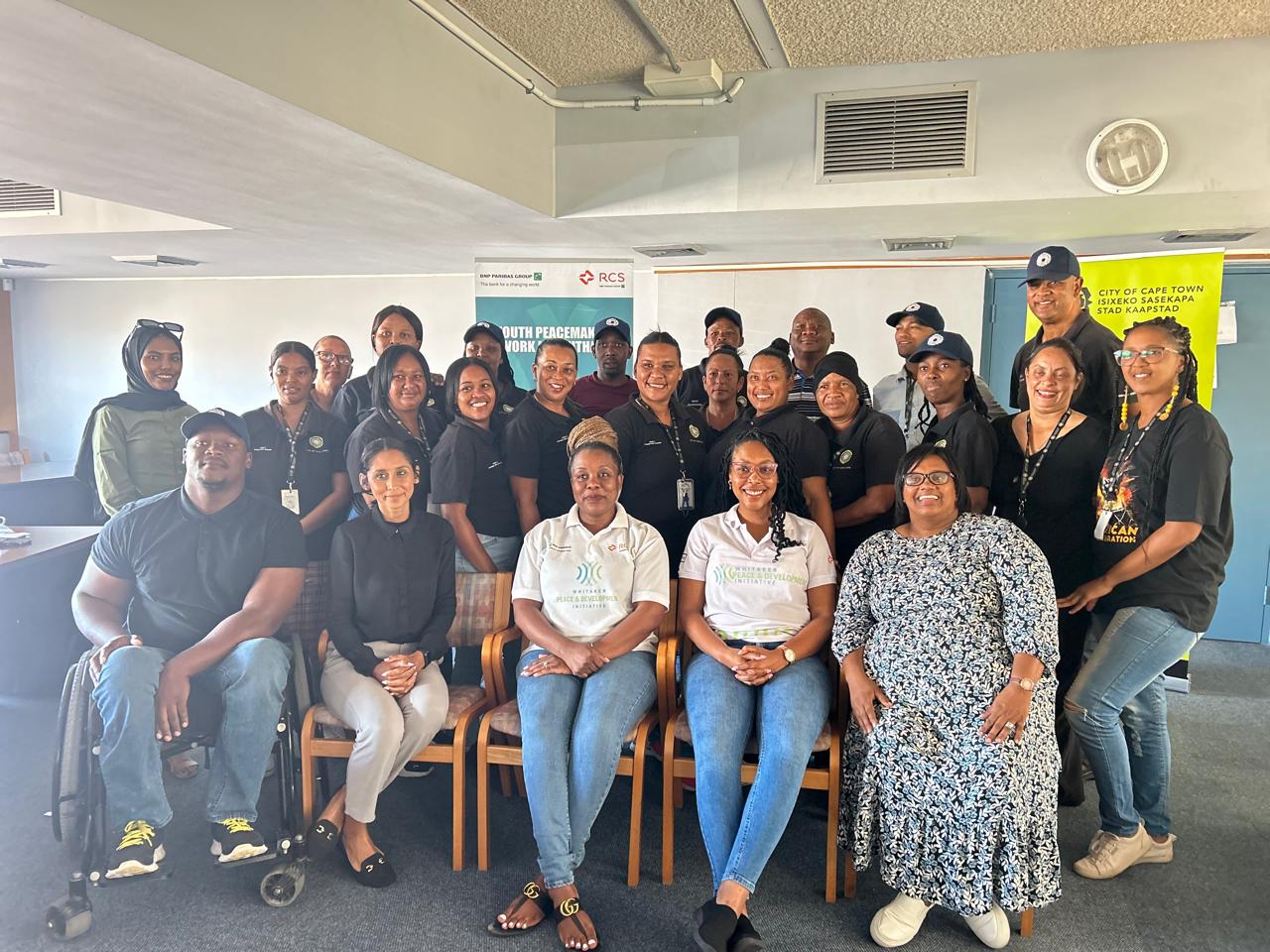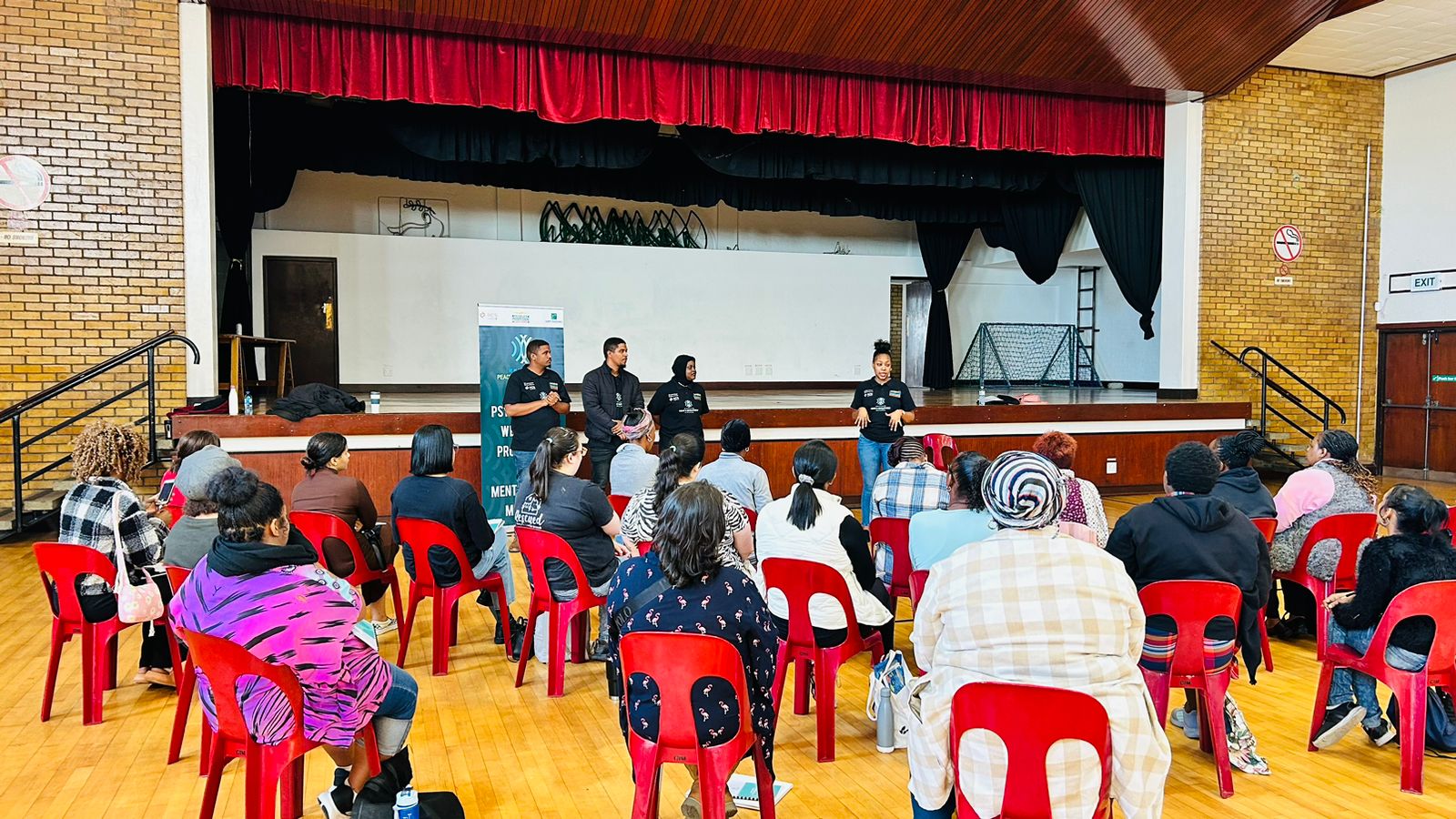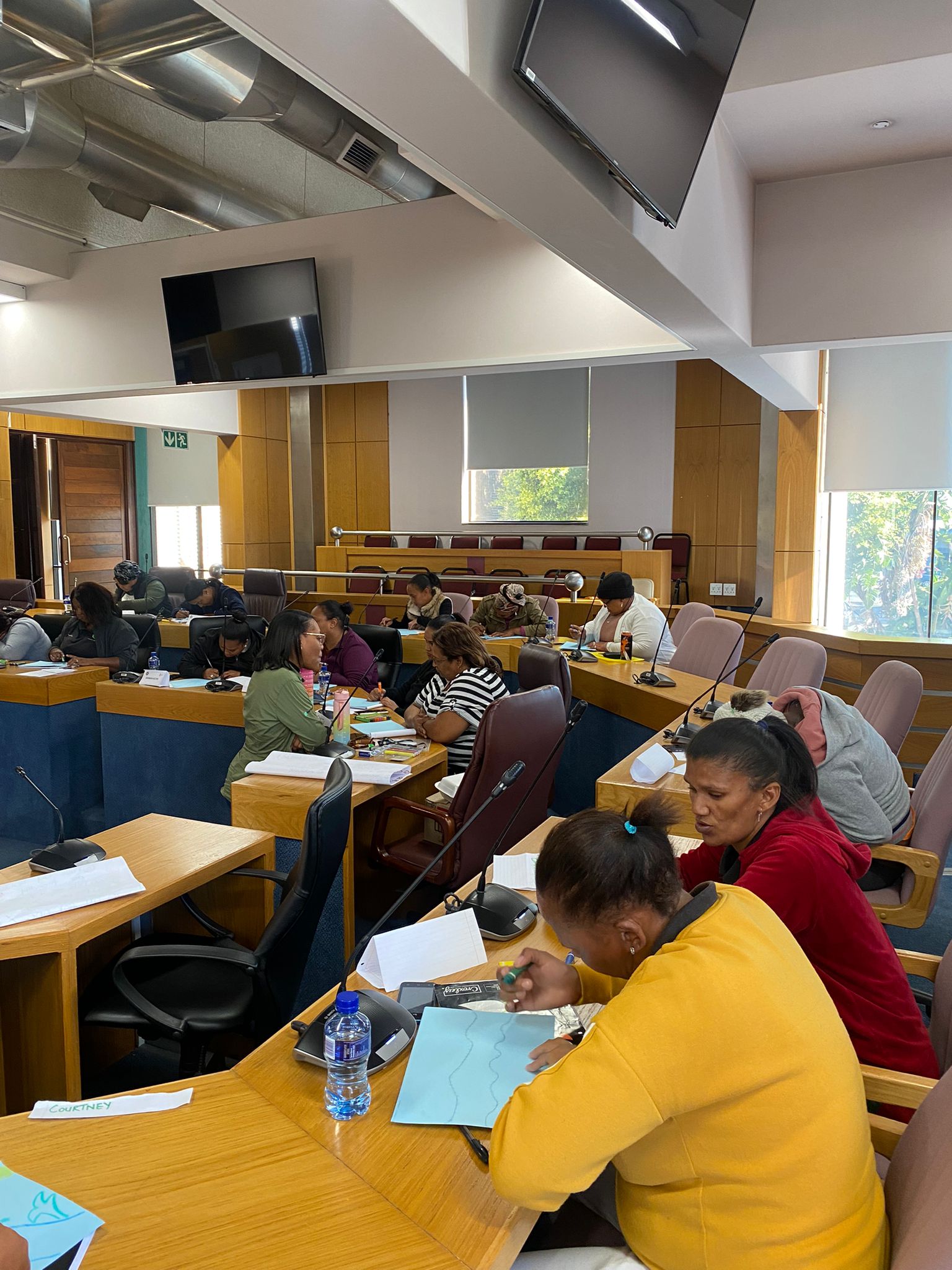June 27, 2024 – Our experience working around the world with communities that, while suffering from systemic, structural issues of poverty, exclusion and marginalization, nevertheless possess an inspiring commitment to transformation, has taught us that providing a platform for dialogue is essential for fostering lasting peace. This is why we place such importance in our Community Dialogues program, which is designed to bring local stakeholders, community members and leaders together to discuss local issues in a constructive and proactive manner, with the ultimate goal of finding common solutions to endemic local issues.

This year, we ran a new series of such dialogues in the Cape Flats area of Cape Town, South Africa, demonstrating anew that local communities in the Flats are eager to find solutions to a number of local issues, such as drug abuse, delinquency, childhood neglect, and mental health.
A Community Dialogue in Kuilsriver brought together representatives of various Cape Flats communities to jointly address such pressing local issues and explore solutions. Participants highlighted the urgent need for improved aftercare facilities and safe spaces for neglected children. The discussion also focused on gender-based violence (GBV) and domestic violence (DV), advocating for GBV centers near police stations to facilitate easier reporting and access to support. Substance abuse emerged as a significant challenge, with calls for enhanced support and rehabilitation services for those struggling with addiction.
“Hearing firsthand accounts of the challenges faced by neglected children, victims of GBV, and individuals struggling with substance abuse reinforced the importance of collective action. The commitment and dedication of the participants to find solutions and support each other were truly inspiring. I’m grateful to have been a part of such an impactful event,” observed one participant.

The dialogue underscored how vulnerable children can be in households facing social challenges like abuse, violence, and conflict, and emphasized the need for comprehensive interventions. Additionally, concerns about the lack of positive role models for girls led to suggestions for women empowerment camps to provide mentorship and guidance.
Another dialogue in the community of Kensington further explored issues affecting community well-being, particularly drug and alcohol abuse among youth and adults. It was noted that gangs exploit children by coercing them into selling drugs, offering material goods their families cannot afford. This exploitation highlights the deeper issue of children seeking belonging and affection from gangs. The dialogue also addressed generational trauma within families and the communication gap between parents and children, noting the shame associated with discussing problems openly. The absence of social workers in schools was identified as a gap in support for vulnerable youth.
“Finally, we had the opportunity to discuss the issues in our community and work together to find solutions. I hope that there will be further steps to make Kensington a safer place for us and our children,” commented one participant.

In a dialogue in the Gugulethu township, predominantly attended by women, participants shared personal stories about mental health challenges faced by their families and themselves. The discussion highlighted the severe lack of mental health services in the community, which participants connected to such an array of factors as high crime rates and the prevalence of undiagnosed mental illnesses. The stigma surrounding mental health and lack of awareness contribute to underdiagnosis and inadequate treatment.
A significant portion of the dialogue subsequently revolved around the relevance of psychosocial wellbeing programs like the one offered by WPDI, which provides crucial individual counseling services and community engagements. Launched earlier this year, this program has been a valuable resource, offering support and facilitating referrals for individuals with psychiatric issues. The dialogue emphasized the urgent need for improved and more accessible mental health services across Cape Town and the Flats in particular, fostering a sense of mutual support and increasing awareness among participants.
In our view, the most important conclusion of this dialogue is to have contributed to create such an awareness of solutions that the community needs. Our hope is that these dialogues, conducted by local peacemakers trained by WPDI who have a deep knowledge of local issues, will help local communities develop communal trust and the skills necessary to mediate conflicts, encourage preventative educational actions and understand the very human nature of many of the issues affecting local communities. With such an understanding, peace is made easier to achieve.
In partnership with
